Russia and Ukraine exchange 190 prisoners; Moscow issues “strong” warning to Kiev’s proposal on nuclear weapons; Germany prevents NATO from entering the war, IMF says Ukraine’s economic outlook faces “particularly high uncertainty”… are updates on the Russia-Ukraine conflict hotspot.
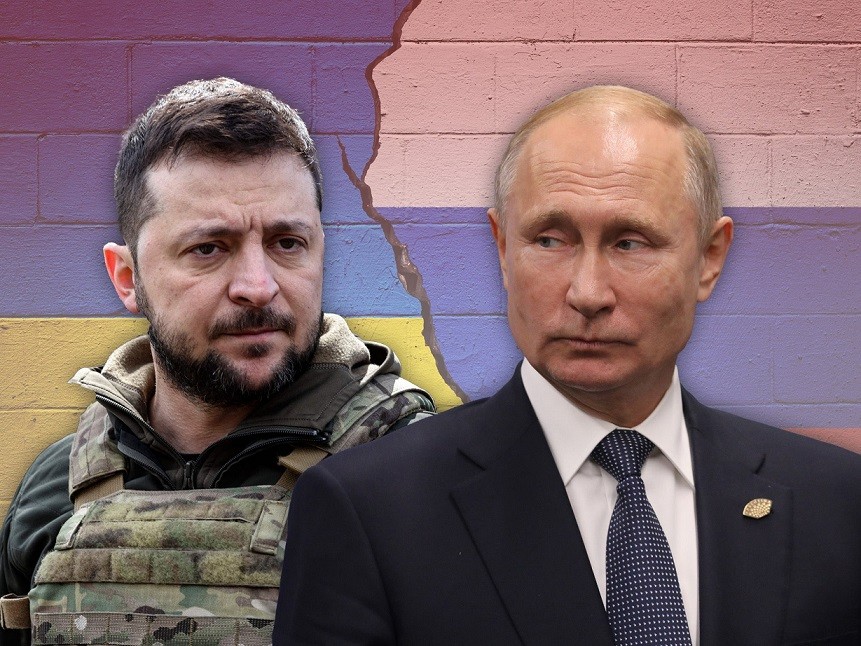 |
| Russian President Putin called his Ukrainian counterpart Zelensky's nuclear weapons proposal a "dangerous provocation". (Source: Independent) |
Russia's Defense Ministry announced that on October 18, it and Ukraine exchanged a total of 190 prisoners, with 95 people on each side, under an agreement completed through the mediation of the United Arab Emirates (UAE).
On its Telegram channel, the Russian Defense Ministry said the country's returned servicemen were undergoing medical examinations in Belarus - one of Moscow's closest allies in the nearly three-year military conflict.
Currently, Ukraine has not made a statement confirming the above prisoner exchange.
The most recent prisoner exchange between Russia and Ukraine took place in September, involving a total of 103 people from both sides.
* Russian President Vladimir Putin on October 18 assessed the proposal of his Ukrainian counterpart Volodymyr Zelensky that Kiev would seek nuclear weapons if it could not join the North Atlantic Treaty Organization (NATO) as a "dangerous provocation".
Speaking to reporters from the BRICS group of leading emerging economies, President Putin said: “This is a dangerous provocation. Any steps in this direction will be met with an adequate response.”
At the press conference, the Russian leader also confirmed that he will not attend the G20 Summit, scheduled to be held in Brazil next November.
* German Chancellor Olaf Scholz on October 18 reaffirmed his firm support for Ukraine , but stressed that the North Atlantic Treaty Organization (NATO) must not become a belligerent party.
Speaking at a joint press conference with US President Joe Biden in Berlin, the German Chancellor said: "We stand by Ukraine as long as necessary," and made it clear that actions had been closely coordinated across the Atlantic.
For his part, President Biden noted that the United States and Germany will hold consultations to discuss ongoing efforts to increase support for the Ukrainian military, strengthen the Eastern European country's civilian energy infrastructure, and help Kiev recover through the use of frozen Russian assets.
President Biden arrived in Berlin on the evening of October 17, for the last time before leaving office.
* US President Joe Biden admitted on October 18 that his administration has not yet reached a consensus on lifting restrictions on the use of weapons provided by Washington to allow Ukraine to attack targets deep inside Russian territory.
Before boarding Air Force One to leave Berlin, Germany, when asked if there was a possibility of changing his decision on long-range weapons, President Biden replied: “In foreign policy, there is never a ‘I never change my mind’. Right now, there is no consensus on long-range weapons.”
Earlier, Russian President Vladimir Putin said that NATO member states are not only discussing the possibility of allowing Kiev to use Western long-range weapons against Moscow, but are essentially deciding whether to directly participate in the Ukrainian conflict. According to him, the direct involvement of Western countries will change the nature of the Ukrainian conflict and Moscow will be forced to make decisions based on new threats to Russia.
* White House National Security Council spokesman Sean Savett on October 18 expressed concern over reports that North Korea had mobilized troops to support Russia in a special military operation in Ukraine, after South Korea's intelligence agency mentioned this development.
Responding to questions from Yonhap news agency about the above information, Mr. Savett expressed: "We are concerned about the information about North Korean soldiers fighting on behalf of Russia. If true, this move would mark a significant increase in the defense relationship between North Korea and Russia."
* In the latest news related to the situation in Ukraine, the Executive Board of the International Monetary Fund (IMF) on October 18 approved a disbursement of 1.1 billion USD to Ukraine , with the aim of supporting the budget for the Eastern European country devastated by military conflict.
The loan is the latest disbursement in a four-year, $15.5 billion financing program that the IMF approved for Ukraine in March 2023. This fifth loan brings the total amount disbursed to Ukraine since then to $8.7 billion.
“The Russia-Ukraine conflict continues to inflict heavy social and economic costs,” IMF Managing Director Kristalina Georgieva said in a statement. “Despite the ongoing conflict, macroeconomic and financial stability has been maintained thanks to the prudent policies of the Ukrainian authorities and substantial external support. The economy remains resilient, despite severe damage to energy infrastructure, reflecting the continued resilience of households and businesses.”
The IMF said that Ukraine has met all relevant targets, including structural reforms on tax incentives, public enterprises and customs reform. According to the organization, the Ukrainian economy has “recovered more strongly than expected” in the first half of 2024, with positive domestic figures “underpinned by significant and continued external support”.
However, the IMF warned that the outlook for the rest of next year had deteriorated, “due primarily to Russia’s continued attacks on Ukraine’s energy infrastructure and the uncertainty surrounding the conflict.” It also said Ukraine’s economic outlook still faced “exceptionally high uncertainty.”
Source: https://baoquocte.vn/xung-dot-nga-ukraine-moscow-kiev-trao-doi-tu-binh-duc-ngan-nato-my-lo-ngai-thong-tin-nay-290603.html



![[Photo] Panorama of the Opening Ceremony of the 43rd Nhan Dan Newspaper National Table Tennis Championship](https://vphoto.vietnam.vn/thumb/1200x675/vietnam/resource/IMAGE/2025/5/19/5e22950340b941309280448198bcf1d9)
![[Photo] Close-up of Tang Long Bridge, Thu Duc City after repairing rutting](https://vphoto.vietnam.vn/thumb/1200x675/vietnam/resource/IMAGE/2025/5/19/086736d9d11f43198f5bd8d78df9bd41)
![[Photo] President Luong Cuong presents the 40-year Party membership badge to Chief of the Office of the President Le Khanh Hai](https://vphoto.vietnam.vn/thumb/1200x675/vietnam/resource/IMAGE/2025/5/19/a22bc55dd7bf4a2ab7e3958d32282c15)
![[Photo] General Secretary To Lam attends the conference to review 10 years of implementing Directive No. 05 of the Politburo and evaluate the results of implementing Regulation No. 09 of the Central Public Security Party Committee.](https://vphoto.vietnam.vn/thumb/1200x675/vietnam/resource/IMAGE/2025/5/19/2f44458c655a4403acd7929dbbfa5039)



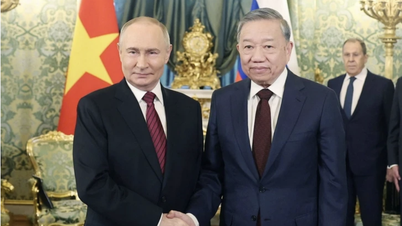





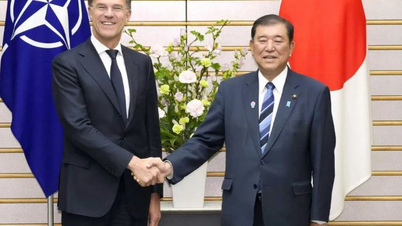
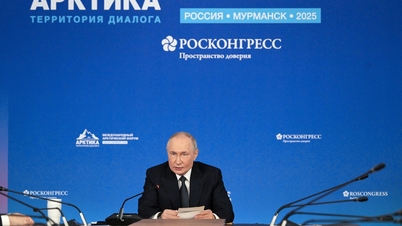



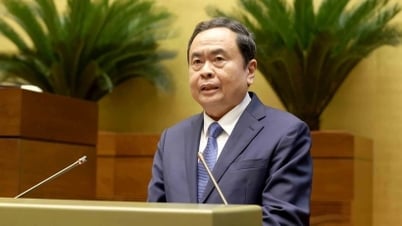
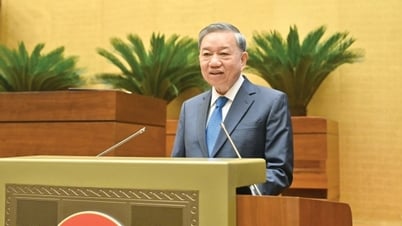
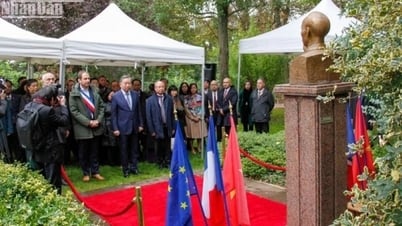












![[Photo] Prime Minister Pham Minh Chinh inspects the progress of the National Exhibition and Fair Center project](https://vphoto.vietnam.vn/thumb/1200x675/vietnam/resource/IMAGE/2025/5/19/35189ac8807140d897ad2b7d2583fbae)











































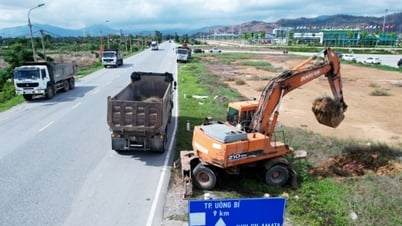














![[VIDEO] - Enhancing the value of Quang Nam OCOP products through trade connections](https://vphoto.vietnam.vn/thumb/402x226/vietnam/resource/IMAGE/2025/5/17/5be5b5fff1f14914986fad159097a677)



Comment (0)